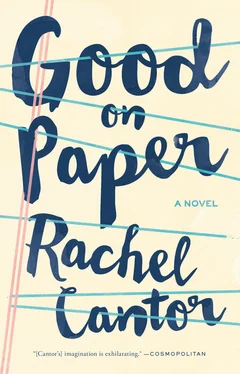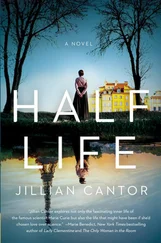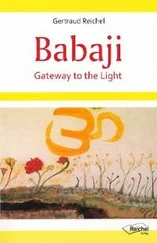Shira, that’s amazing! he said when I was done, looking at me in wonder, as if he thought this miracle somehow my doing. Which, given his belief in karma, he probably did. We must drink to your success! Ginger beer?
He put Marla gently on the ground. Offended, she returned to her box.
Libations! he exclaimed when he returned.
L’chaim , I added gamely.
I assume Romei is paying you?
A lot! I said.
Good! You can sponsor Son of Gilgul ! It’s reincarnating: next issue by Y2K.
I hadn’t realized Gilgul was dead!
You’d know if you were still sending me stories, ma cherie .
I didn’t bother explaining that I’d stopped writing. Ahmad had despised my last story (“Domino Effect,” about Jonah); Jonah’s sister Jeanette stopped talking to me because of it. I asked instead about the magazine. Benny clasped his hands behind his head and extended his long, jean-clad legs into the aisle.
I had a few lean years. My board forced me to close.
That’s the fate of the gilgul, right? The soul eternally reincarnating?
Until we get it right. Some of us are going to be here a very long time.
I’m sure your gilgul’s in great shape.
Humph, he said. So Romei’s an interesting guy, huh?
I accepted the change of subject.
Imagine, I said, giving up your homeland and language to write terza rima in Roma!
Exactly! Benny said. Prose writers change languages all the time — Nabokov, Conrad …
Ionesco, Tristan Tzara, if we stick to his countrymen. But poets? It isn’t done!
Except by Romei.
I assume he was fleeing censorship and communism, I said.
Or the country that killed his parents, Benny said pensively, staring into the middle distance, which at People of the Book meant the shelf for Games People Play.
Of course, I said, remembering. Benny’s father had been a Russian POW who’d ended up hunting down Nazis after the war. He wasn’t a nice man, may he rest in peace. Benny’s mother had escaped to the U.S. in 1939 after the murder of her first husband, whom she hadn’t particularly liked. She’d been a dancer; in America she kept books for her brother-in-law’s schmatta business. The family she left behind died, like most families left behind.
It makes sense he doesn’t write in Romanian, I said. He would have been an imperialist poet non grata in Romania. No one would have published his books there. Who’s going to read poetry in Romanian, if Romanians in Romania can’t?
Paul Celan wrote in German, Benny added, but German was his mother tongue.
Right! I said.
But still, he said, imagine!
We sipped our drinks, imagining.
So what do you know about his project? This would be his first since, what?
Nonsense Syllables .
And his first “story.”
Yes, I said.
What is this Vita Nuova business?
Early work of Dante, I said. Written in 1294, before the Comedy , before his exile from Florence. Really, you don’t know it?
Benny laughed. Not my cup of tea, exactly.
Vita Nuova traces the evolution of Dante’s love for Beatrice and his poetic response to that love. He includes relevant poems, which he explicates ad nauseum.
For example?
For example: I was thinking of the blessed Beatrice when I swooned and had a vision of the blessed Beatrice and out popped a sonnet about the blessed Beatrice, this one here, in which I swoon, have a vision, and write a sonnet about the blessed Beatrice. Story, poem, explication.
Benny laughed again.
My case is resting, he said. But it’s not just poems and explication — you said it’s a story?
After a fashion, I said. Not quite as gripping as the Divine Comedy , but it has something of a “hero’s journey” structure.
I described to Benny what I considered to be Vita Nuova ’s mythic structure (but refrained from offering a copy of the essay in which I elaborated this theory): Call, Threshold, Deception, Muse, Death, Test, and Return. The call identifies Dante as the ur-hero of all story: Adam called by Eve to taste; Sam Spade called by the blonde to solve a mystery. Sometimes the hero is reluctant: happy in his easy chair, he tries to avoid the call, he hides out or runs away. Odysseus feigns madness to avoid the draft; Rick tells Ilsa he’s a sideliner.
The hero eventually has to come around, though, or there can be no story. He makes his commitment, crosses the threshold, and thrusts himself into story, where, aided by mentors, inspired by beauties, deceived by tricksters, challenged by opponents, he makes allies, surmounts obstacles, faces death, and is reborn to face his final test. Victorious, he returns to Kansas bringing exactly what his people need — the elixir, the golden crown. Sometimes he also gets the girl. Not something I made up, I added.
But eccentric when applied to Dante, Benny said.
Not commonplace, I agreed. Especially when you consider that Dante’s hero battles sin, not dragons.
What kind of sin? Something juicy?
Just your garden variety, live-your-life-you’re-bound-to-sin kind of thing.
So young Mr. Dante is a hero in this book about poetry. Can a book about poetry have a hero?
He is a hero, in his own mind! He’s called by love to be a poet, though of course he loves from afar. He writes poems, which of course come up short because nothing is good enough for Beatrice. He tries to contemplate her perfections, can’t always manage it, gets advice, the advice changes — then Beatrice dies, and he’s thrown off course — maybe he even despairs. He finally has a vision of Beatrice in heaven — an ineffable vision — that sets him up for life — aesthetically and, we assume, spiritually. That’s enough to make him a hero, right? A man on a lonely journey toward the good, trying to live his life right? A pilgrim hero!
Coming soon to a theater near you!
Hah! Though his victory is just as inevitable as that of any dragon slayer. Redemption is always the light at the end of the tunnel, isn’t it? Even when Dante strays, you know his narrative will keep him on the straight and narrow …
Sadly, we no longer believe in such a thing, Benny replied.
The straight-line narrative to salvation has been discredited, yes.
By Romei, among others. So what’s Romei want with it? He doesn’t go in much for story.
Or tradition. And now he’s taking on the Big Guy.
If you take on a Big Guy, you take on his Big Work, no?
Right, I said, the Divine Comedy . You admit you’ve reached the middle of your life’s journey, and you survey the terrain.
Romei’s hardly at the middle of his life’s journey! What is he, seventy by now?
At least seventy-five! I said.
So he’s reached the end of his life’s journey, Benny said. You say Vita Nuova was written by a young man about recent events, but Romei, being old, writes about temps perdus .
Yes! I said. Dante writes with pre-exilic promise, Romei from the perspective of been-there-done-that. Another thing: Dante is nothing if not certain — life has meaning and he knows what it is.
Lucky man! Benny said.
But Romei’s made a career out of ridiculing nostalgia for meaning. What will he do now? Stick to his guns, reject Dante’s straight-line narrative to salvation? Or has age placed him in the trenches, where all sinners cry out to be saved?
Silence.
Benny?
Do you believe in forgiveness? he asked. What do you think it is?
Forgiveness? I said. No idea!
Not your favorite subject.
You could say that.
We sipped our ginger beer.
Why do you think Romei’s going public? Benny asked. He’s always been so private.
Читать дальше












